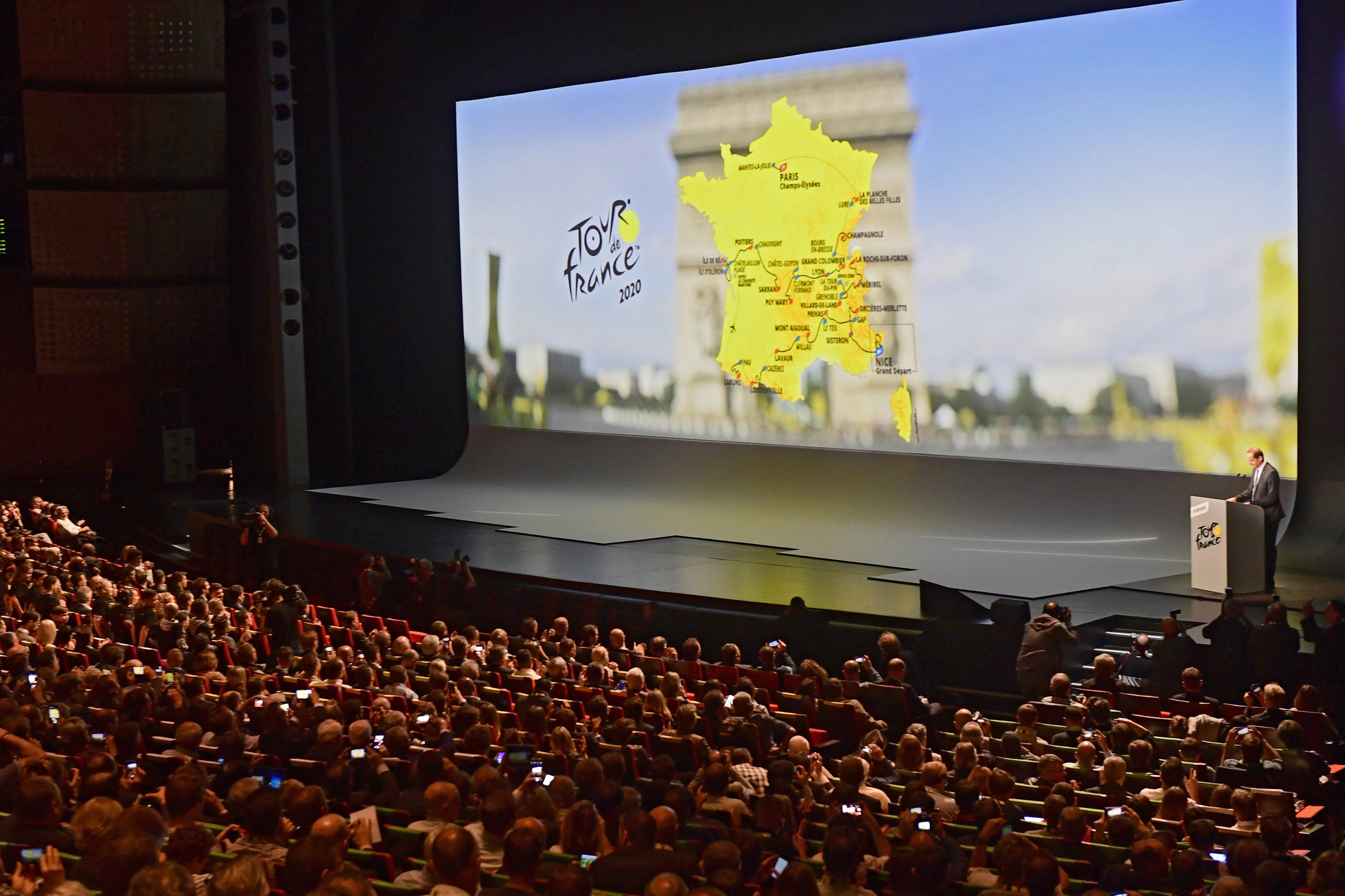Vuelta a España director downplays 2020 Tour de France route's debt to Spanish race
Guillén to mix innovation and tradition in 75th edition of the Vuelta

The Tour de France’s radically different-looking format for 2020 is in no way indebted to the Vuelta a España’s predilection for similar kinds of routes, says Vuelta boss Javier Guillén.
When the 2020 Tour route was unveiled in Paris on Tuesday, the unprecedentedly tough first week, with mountains as early as stage 2 and 4, was highly reminiscent of recent editions of the Vuelta. This year’s race, for instance, had four summit finishes in the first nine days, beginning with stage 5 at Javalambre.
The 2020 Tour de France will multiply its ultra-steep ascents too – another Vuelta trademark – by including the Col de la Loze on stage 17 and the Plateau des Glières on stage 18, as well as a return to La Planche des Belles Filles on stage 20.
Like recent Vueltas, the 2020 Tour will also feature plenty of hilly, punchy stages, but fewer set-piece mountain treks. In next year’s Tour, only one stage will be over 200 kilometres, as was the case in the 2019 Vuelta, when the 219-kilometre leg from Aranda de Duero to Guadalajara was the site of a mass attack that almost scuppered Primoz Roglic’s hold on the overall lead.
Despite those similarities, however, Vuelta a España director Javier Guillén does not believe the Tour has drawn on his race for inspiration.
“The Tour has its own personality and it’s the sport’s most important event. So it’s the reference point for the Vuelta, as it is for the whole of cycling, not the other way round,” Guillén told Cyclingnews.
“Just because there may or may not be parallels between these two or other races, doesn’t mean that one is based on the other’s ideas.
The latest race content, interviews, features, reviews and expert buying guides, direct to your inbox!
“It’s true that the Vuelta has its own identity, even if a lot of races prefer shorter stages to longer ones or who beef up their mountain stages, although I’d say that the Vuelta, rather than being very mountainous, is more a race about summit finishes.
“It’s nice to compare Grand Tours and any organiser will look at other races and see which formats have worked and which have not. We’re all professionals. But to go from there to say the Tour is taking a leaf out of the Vuelta’s book is going way too far and is certainly not the case.”
As Guillén sees it, rather than the Vuelta, this year’s Tour de France route owes more to his French counterpart Christian Prudhomme’s liking for innovation.
“That’s one of his trademarks, he likes doing different things in different editions, discovering different climbs, and in recent editions of the Tour, for example, there has been a drop each year in the amount of time trialling. I’m sure that next year’s Tour will be different again from this one,” Guillén said.
“The Giro is maybe the most traditional of all the Grand Tours, with long stages, big set-piece mountain stages at altitude. It’s really good at that and maybe the Vuelta and Tour look more at new approaches to Grand Tour routes. But there are no dogmas in this business and if you analyse the three, the really important thing is that they are all very different, with their own character – and just as well."
The 2020 Giro d’Italia route will be announced on October 24, while the Vuelta presentation will, subject to final confirmation, take place in December in Madrid.
For now, all that has been established about the route is that the Vuelta will start in Utrecht in the Netherlands on August 14, the fourth time in the Grand Tour’s history it has begun outside Spain, and the race will finish in Madrid on September 6.
“It’s designed to commemorate the fact that 2020 is the 75th edition of the Vuelta, too,” Guillén said of the 2020 route. “So while there will be some innovation, it will be recognisable as a typical Vuelta route, too."
Alasdair Fotheringham has been reporting on cycling since 1991. He has covered every Tour de France since 1992 bar one, as well as numerous other bike races of all shapes and sizes, ranging from the Olympic Games in 2008 to the now sadly defunct Subida a Urkiola hill climb in Spain. As well as working for Cyclingnews, he has also written for The Independent, The Guardian, ProCycling, The Express and Reuters.
